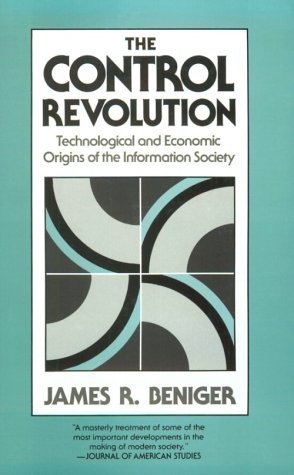Matthew Wisnioski: Engineers for Change: Competing Visions of Technology in 1960s America (2012)
Filed under book | Tags: · 1960s, 1970s, activism, computing, education, engineering, history of computing, history of technology, labour, luddism, military, science, space, technology

“In the late 1960s an eclectic group of engineers joined the antiwar and civil rights activists of the time in agitating for change. The engineers were fighting to remake their profession, challenging their fellow engineers to embrace a more humane vision of technology. In Engineers for Change, Matthew Wisnioski offers an account of this conflict within engineering, linking it to deep-seated assumptions about technology and American life.
The postwar period in America saw a near-utopian belief in technology’s beneficence. Beginning in the mid-1960s, however, society—influenced by the antitechnology writings of such thinkers as Jacques Ellul and Lewis Mumford—began to view technology in a more negative light. Engineers themselves were seen as conformist organization men propping up the military-industrial complex. A dissident minority of engineers offered critiques of their profession that appropriated concepts from technology’s critics. These dissidents were criticized in turn by conservatives who regarded them as countercultural Luddites. And yet, as Wisnioski shows, the radical minority spurred the professional elite to promote a new understanding of technology as a rapidly accelerating force that our institutions are ill-equipped to handle. The negative consequences of technology spring from its very nature—and not from engineering’s failures. “Sociotechnologists” were recruited to help society adjust to its technology. Wisnioski argues that in responding to the challenges posed by critics within their profession, engineers in the 1960s helped shape our dominant contemporary understanding of technological change as the driver of history.”
Publisher MIT Press, 2012
ISBN 0262018268, 9780262018265
296 pages
via a2
Interview with the author (Carla Nappi, New Books in Science, Technology, and Society, audio, 1h)
Review (Caroll Pursell, The American Historical Review, 2014)
Review (Kevin T. Baker, The Sixties, 2013)
Review (Stephen H. Unger, 2013)
James R. Beniger: The Control Revolution: Technological and Economic Origins of the Information Society (1986)
Filed under book | Tags: · advertising, agriculture, bureaucracy, computing, cybernetics, economy, energy, history of technology, industrial revolution, industry, information society, management, mass media, radio, society, technology, telegraphy, telephone, television, transport

“James Beniger traces the origin of the Information Society to major economic and business crises of the past century. In the United States, applications of steam power in the early 1800s brought a dramatic rise in the speed, volume, and complexity of industrial processes, making them difficult to control. Scores of problems arose: fatal train wrecks, misplacement of freight cars for months at a time, loss of shipments, inability to maintain high rates of inventory turnover. Inevitably the Industrial Revolution, with its ballooning use of energy to drive material processes, required a corresponding growth in the exploitation of information: the Control Revolution.
Between the 1840s and the 1920s came most of the important information-processing and communication technologies still in use today: telegraphy, modern bureaucracy, rotary power printing, the postage stamp, paper money, typewriter, telephone, punch-card processing, motion pictures, radio, and television. Beniger shows that more recent developments in microprocessors, computers, and telecommunications are only a smooth continuation of this Control Revolution. Along the way he touches on many fascinating topics: why breakfast was invented, how trademarks came to be worth more than the companies that own them, why some employees wear uniforms, and whether time zones will always be necessary.”
Publisher Harvard University Press, 1986
ISBN 0674020766, 9780674020764
493 pages
via babyalanturing
Review (JoAnne Yates, The Journal of Interdisciplinary History, 1988)
Review (Krishan Kumar, Journal of American Studies, 1988)
Review (Kirkus Reviews)
Book-inspired website
Publisher
PDF (16 MB, updated on 2016-6-16)
Comment (0)Stewart Brand: The Media Lab: Inventing the Future at MIT (1987)
Filed under book | Tags: · artificial intelligence, communication, computer graphics, computing, human-computer interaction, information, media, music, new media, programming, publishing, robotics, science fiction, speech, technology, television

A magical mystery tour through the world of MIT’s Media Laboratory, then headed by Nicholas Negroponte and in its third year of existence. Chapter 11 develops the dictum “information wants to be free.”
Publisher Viking, New York, 1987
ISBN 0670814423
285 pages
Review (Visual Resources, 1989)
Review (AI Magazine, Lee S. Brownston, 1990)
PDF (50 MB, updated on 2014-3-26 to an OCR’d version via Marcell Mars)
Comment (0)
